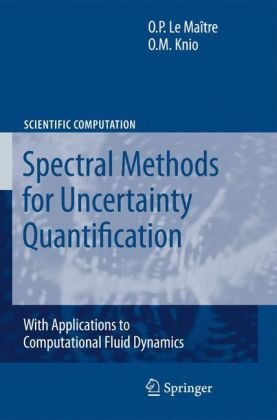

Most ebook files are in PDF format, so you can easily read them using various software such as Foxit Reader or directly on the Google Chrome browser.
Some ebook files are released by publishers in other formats such as .awz, .mobi, .epub, .fb2, etc. You may need to install specific software to read these formats on mobile/PC, such as Calibre.
Please read the tutorial at this link: https://ebookbell.com/faq
We offer FREE conversion to the popular formats you request; however, this may take some time. Therefore, right after payment, please email us, and we will try to provide the service as quickly as possible.
For some exceptional file formats or broken links (if any), please refrain from opening any disputes. Instead, email us first, and we will try to assist within a maximum of 6 hours.
EbookBell Team

5.0
110 reviewsThis book presents applications of spectral methods to problems of uncertainty propagation and quantification in model-based computations, focusing on the computational and algorithmic features of these methods most useful in dealing with models based on partial differential equations, in particular models arising in simulations of fluid flows. Spectral stochastic methods are probabilistic in nature, and are consequently rooted in the rich mathematical foundations associated with probability and measure spaces. A brief discussion is provided of only those theoretical aspects needed to set the stage for subsequent applications. These are demonstrated through detailed treatments of elementary problems, as well as in more elaborate examples involving vortex-dominated flows and compressible flows at low Mach numbers. Some recent developments are also outlined in the book, including iterative techniques (such as stochastic multigrids and Newton schemes), intrusive and non-intrusive formalisms, spectral representations using mixed and discontinuous bases, multi-resolution approximations, and adaptive techniques. Readers are assumed to be familiar with elementary methods for the numerical solution of time-dependent, partial differential equations; prior experience with spectral approximation is helpful but not essential.